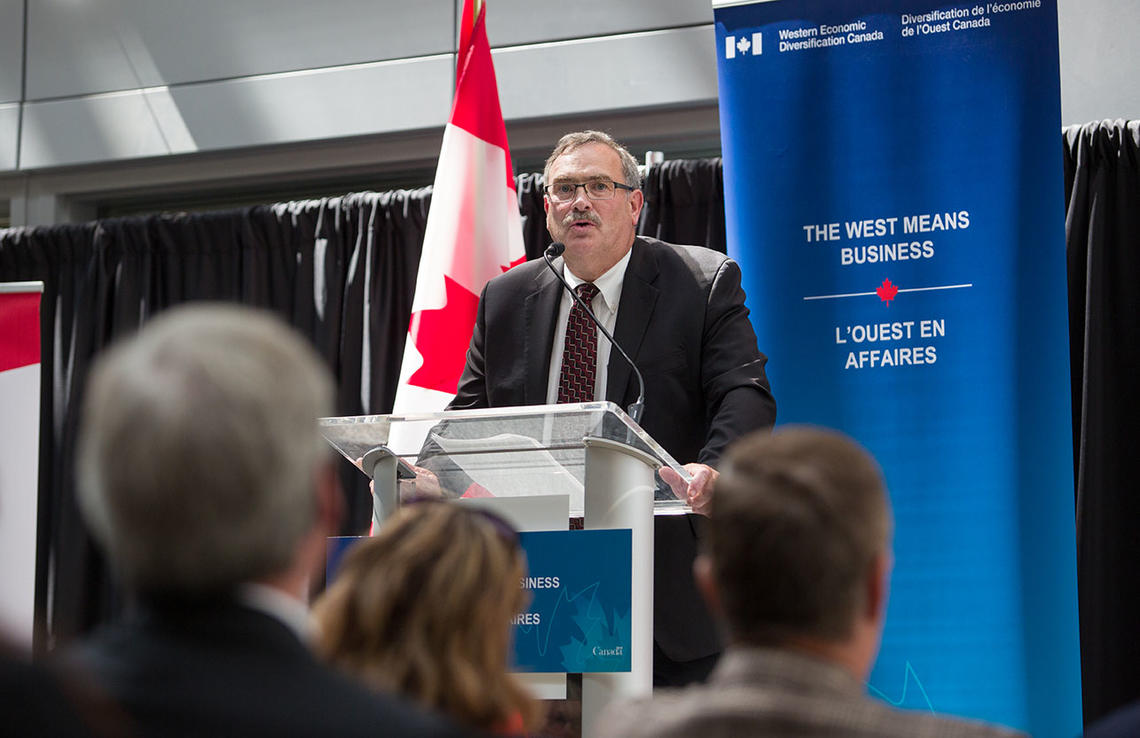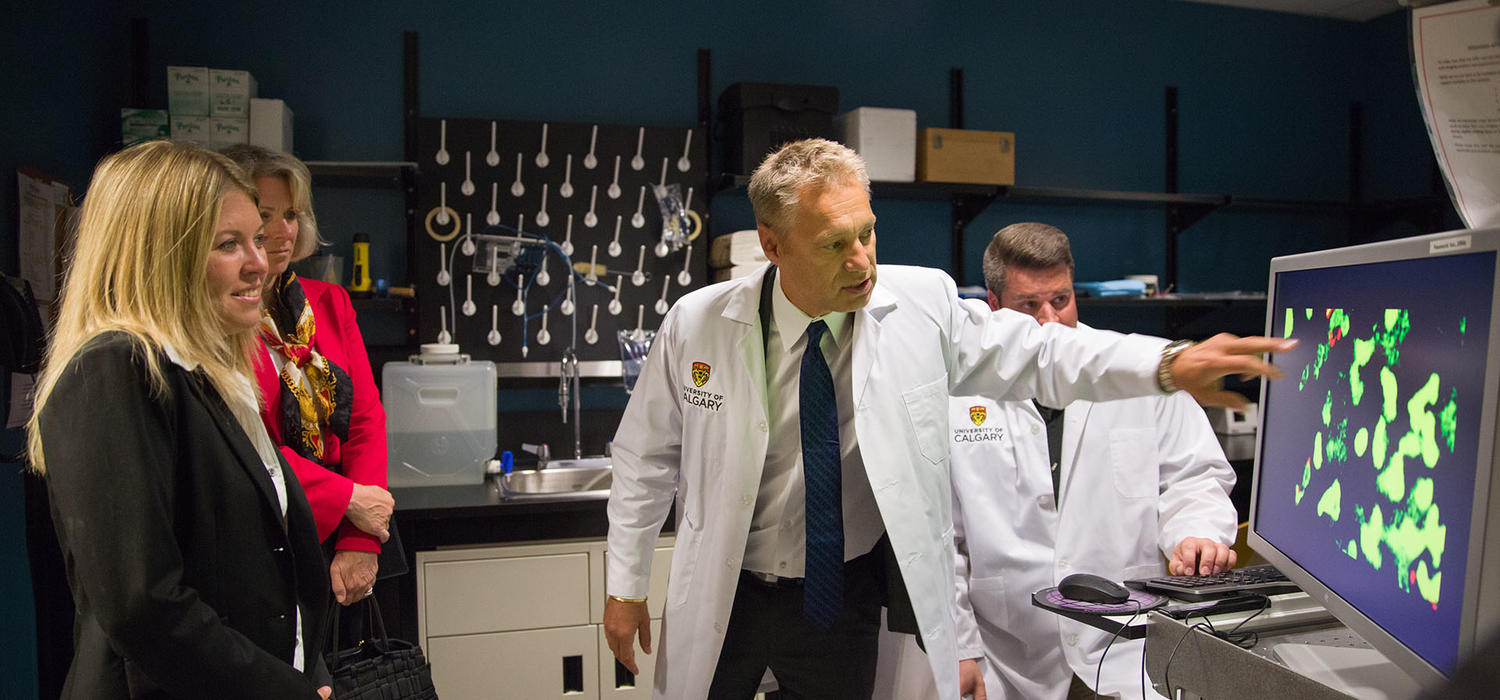
Dr. Jon Meddings speaks at the announcement event for The Western Canadian Microbiome Centre.
July 31, 2015

A new, world-class centre for microbiome research — the study of micro-organisms in the human body and all around us — will be launched at the University of Calgary, helping to drive discoveries in fields such as disease and obesity prevention, antibiotic resistance, food production, and the search for alternative energy sources.
The Western Canadian Microbiome Centre is set to open in 2017 following the announcement Thursday of a federal grant of $9.9 million by the Hon. Michelle Rempel, minister of state for Western Economic Diversification, and MP for Calgary Centre-North. The centre will be the site of a germ-free lab — one of only a handful of facilities like it in the world, and the only one in Canada focusing on applied microbiome research.
“Our university community is extremely proud to be the site of the Western Canadian Microbiome Centre,” said university President Elizabeth Cannon. “Western Economic Diversification Canada’s support helps to reinforce our internationally recognized strengths in our strategic research area of infections, inflammation and chronic diseases. Researchers will collaborate with industry partners to promote improved health, food security and energy innovation for all Canadians and influence applied science on a global level.”
Pictured above are, from left: Michelle Rempel, minister of state for Western Economic Diversification; Elizabeth Cannon, president and vice-chancellor; and Paul Kubes, PhD, professor and leader of the university’s research priority in Infections, Inflammation and Chronic Diseases.
Applications within health care and beyond
Located within the Cumming School of Medicine, the centre will host a powerful coalition of researchers from across campus who will create applications to address global health issues while also creating solutions beyond health, said Paul Kubes, PhD, professor and leader of the university’s research priority in Infections, Inflammation and Chronic Diseases.
The centre’s researchers will explore how microbiota — communities or colonies of interacting micro-organisms found throughout nature — could increase crop and livestock production, find energy solutions for carbon dioxide conversion, and more reliably transform biomass into an alternative energy source.
“Applying the currency of emerging discoveries in this area of life science with such broad applications will be truly new,” Kubes added.
The centre will also create a critical hub for University of Calgary researchers to partner with industry and with universities across Western Canada. Discoveries could create jobs by sparking new business opportunities in Alberta, as well as by helping to grow existing industries in energy management, agri-food and health care.

Dr. Jon Meddings speaks at the announcement event for The Western Canadian Microbiome Centre.
Like a ‘new organ’ in the body
The human gut is an example of a microbiome of trillions of micro-organisms, such as bacteria and viruses, in hundreds of strains. “This microbiome has more cells than your whole body put together. Can you imagine if someone told you: ‘We’ve just discovered a new organ that we just didn’t know about all these years?’ ” Kubes asks.
The microbiome can be affected by things such as antibiotics meant to kill infections elsewhere in the body. Disruptions of the microbiome may potentially play a role in everything from cancer and obesity to the growing number of children affected by allergies and asthma, said Kubes. “Another big question is whether it contributes to Alzheimer’s disease, depression, and autism.”
“One of the least understood frontiers of medicine is the interaction between us and the environment enclosed inside us — the microbiome. We believe that many of the mysteries that remain unresolved about inflammatory diseases, the brain and perhaps certain cancers are due to this interaction,” explained Dr. Jon Meddings, dean of the Cumming School of Medicine.
“Having a world-class centre to study this will allow us to make enormous strides in creating the future of health.”
The Western Canadian Microbiome Centre advances our strategic research priorities in Infections, Inflammation and Chronic Diseases and Energy Innovations for Today and Tomorrow, cornerstones of our Strategic Research Plan that addresses global challenges by building on our expertise in these areas.